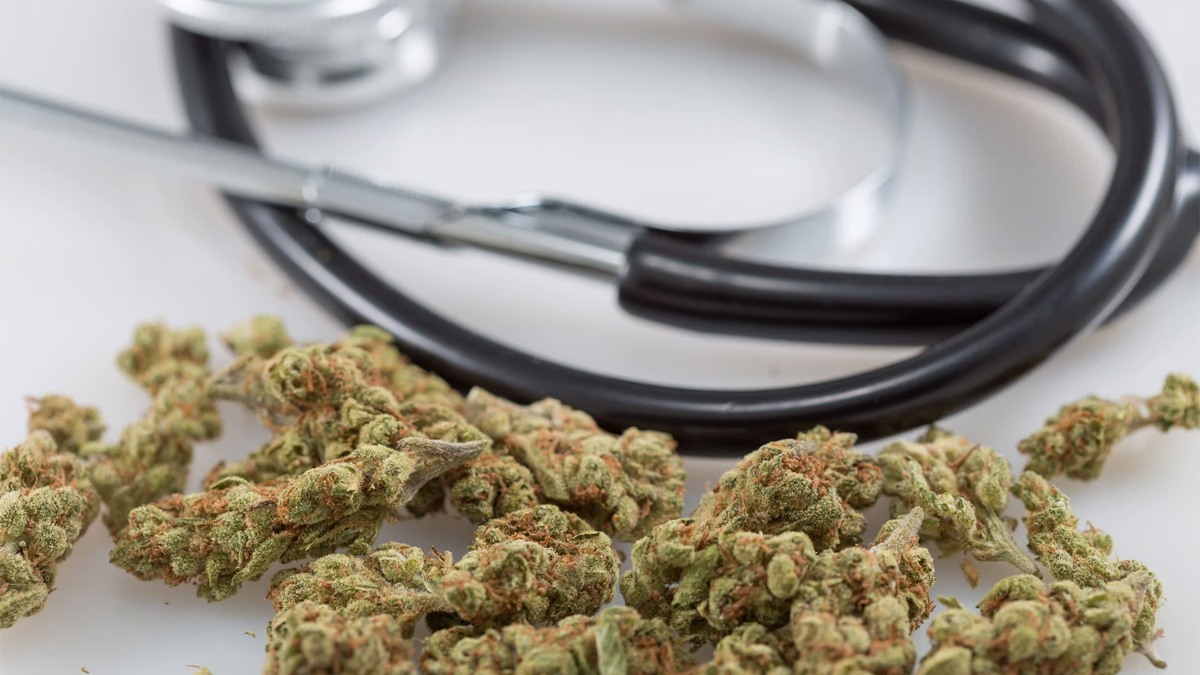
A new scientific review on cannabis and cancer concludes that a variety of cannabinoids—including delta-9 THC, CBD and cannabigerol (CBG)—”show promising potential as anticancer agents through various mechanisms,” for example by limiting the growth and spread of tumors.
But authors acknowledged that obstacles to incorporating cannabis into cancer treatment remain, such as regulatory barriers and the need to determine optimal dosing.
“Cannabinoids, including Δ9-THC, CBD, and CBG, exhibit significant anticancer activities such as apoptosis induction, autophagy stimulation, cell cycle arrest, anti-proliferation, anti-angiogenesis, and metastasis inhibition,” says the report, published late last month in the journal Discover Oncology. “Clinical trials have demonstrated cannabinoids’ efficacy in tumor regression and health improvement in palliative care.”
The workings behind those apparent benefits, however, are still largely unknown. “Despite the evident anti-cancer properties of cannabinoids from numerous experimental results,” the review says, “the exact mechanisms of action still require extensive research.”
It adds: “Despite the positive outcomes of using cannabinoids in cancer therapy, there remain significant gaps in knowledge regarding their modes of action, effects on the tumor microenvironment, and the physiology of the signaling pathways they affect.”
To that end, the research team—nine authors from schools in Pakistan, Portugal, Turkey, Saudi Arabia, Romania and South Korea—said that further “large-scale, randomized controlled trials are essential to validate these findings and establish standardized therapeutic protocols.”
While cannabis has been used medicinally for centuries in Asian and South-Asian countries, the team noted, the current renaissance in therapeutic cannabinoids has “sparked renewed research interest, extending their use to various medical conditions, including cancer.”
“By expanding our understanding of cannabinoid mechanisms and their interactions with cancer cells,” they conclude, “we can better harness their therapeutic potential in oncology.”
To compile information for their analysis, authors looked at English-language studies about the anti-cancer properties of cannabinoids. “This included research articles, review articles, and meta-analyses that involved in vitro, in vivo, and clinical trials,” they wrote.
Among the varieties of cancers covered in the research were breast cancer, glioma, leukemia, lung cancer, melanoma. The analysis also looked at the use of marijuana in palliative care and people undergoing chemotherapy, noting that cannabinoids are “significant in the palliative care as it helps in appetite regulation, regulation of pain along with antiemetic [anti-nausea] role.”
Some research also indicates that cannabinoids might have synergistic effects with chemotherapy, according to the review.
“Research suggests that cannabinoids may enhance the cytotoxic effects of chemotherapy through several mechanisms,” it says. “For instance, cannabidiol (CBD) and Δ9-tetrahydrocannabinol (THC) have been shown to induce apoptosis and reduce cell proliferation when used in conjunction with chemotherapeutic agents such as cisplatin, gemcitabine, and paclitaxel. These cannabinoids modulate key pathways involved in cell cycle regulation and apoptosis, thereby increasing the susceptibility of cancer cells to chemotherapy-induced death.”
“Cannabinoids show promising potential as anticancer agents through various mechanisms.”
The new review comes just after publication of another wide-ranging evaluation of cannabis and cancer published by the National Cancer Institute, meant to better answer “core questions” around patients’ relationship with cannabis—including sourcing, cost, behavioral patterns, patient–provider communications and reasons for use.
Published in a special issue of the Journal of the National Cancer Institute’s JNCI Monographs, the package of 14 articles details the results of broad, federally funded surveys of cancer patients from a dozen agency-designated cancer centers across the country—including in areas where marijuana is legal, permitted only for medical purposes or still outlawed.
The individual reports cover an array of issues covered in the patient surveys, the officials explained, highlighting “key topics related to cannabis use such as sourcing of cannabis, associated cost, behavioral factors associated with cannabis use (such as smoking, drinking, or using other substances), patient-provider communication on cannabis use during treatment, ethnic variations in patterns, sources, and reasons for cannabis use as well as methodologic concerns related to survey data analysis.”
Earlier this year, separate research on the possible therapeutic value of lesser-known compounds in cannabis says that a number of minor cannabinoids may have anticancer effects on blood cancer that warrant further study.
That research, published in the journal BioFactors, looked at minor cannabinoids and multiple myeloma (MM), testing responses in cell models to the cannabinoids CBG, CBC, CBN and CBDV as well as studying CBN in a mouse model.
“Together, our results suggest that CBG, CBC, CBN, and CBDV can be promising anticancer agents for MM,” authors wrote, “due to their cytotoxic effect on MM cell lines and, for CBN, in in vivo xenograft mouse model of MM.”
While cannabis is widely used to treat certain symptoms of cancer and some side-effects of cancer treatment, there’s long been interest in the possible effects of cannabinoids on cancer itself.
As a 2019 literature review found, the majority of the studies have also been based on in vitro experiments, meaning they did not involve human subjects but rather isolated cancer cells from humans, while some of the research used mice. Consistent with the latest findings, that study found cannabis showed potential in slowing the growth of cancer cells and even killing cancer cells in certain cases.
A separate study found that some cases, different types of cancer cells affecting the same part of the body appeared to respond differently to various cannabis extracts.
A scientific review of CBD earlier this year also touched on “the diverse anticancer properties of cannabinoids” that the authors said present “promising opportunities for future therapeutic interventions in cancer treatment.”
Research published late last year found that marijuana use was associated with improved cognition and reduced pain among cancer patients and people receiving chemotherapy
While cannabis produces intoxicating effects, and that initial “high” can temporarily impair cognition, patients who used marijuana products from state-licensed dispensaries over two weeks actually started reporting clearer thinking, the study from the University of Colorado found.
Late last year, the National Institutes of Health awarded researchers $3.2 million to study the effects of using cannabis while receiving immunotherapy for cancer treatment, as well as whether access to marijuana helps reduce health disparities.
Federal courts are also considering two separate lawsuits on legal access to therapeutic psilocybin among cancer patients in end-of-life care.
Keep out of reach of children. For use only by adults 21 years of age and older.










